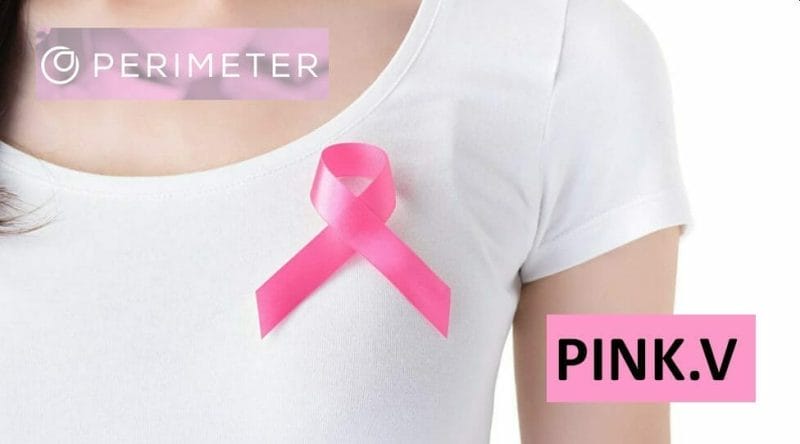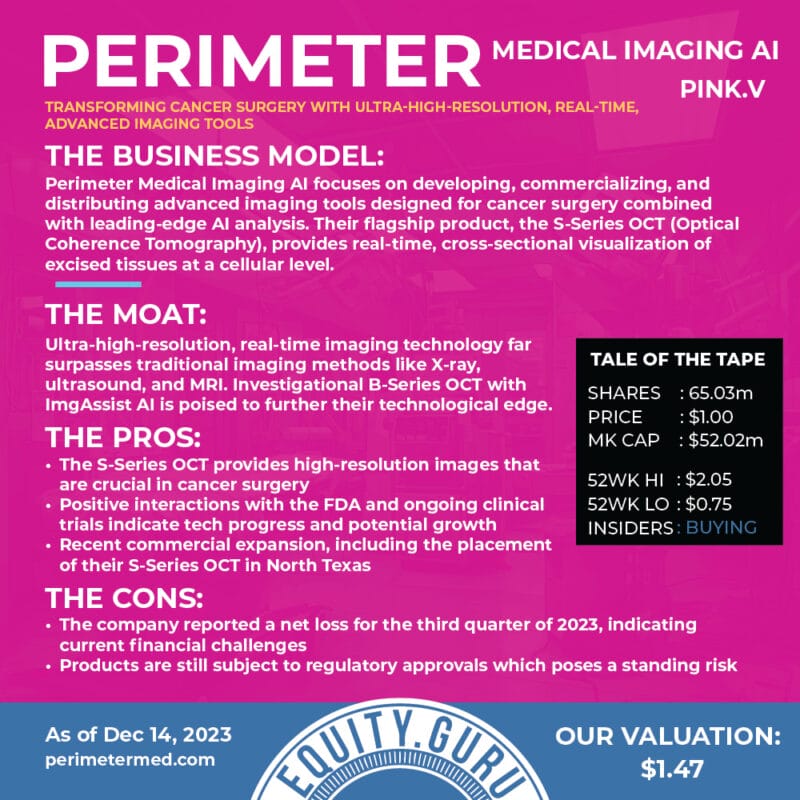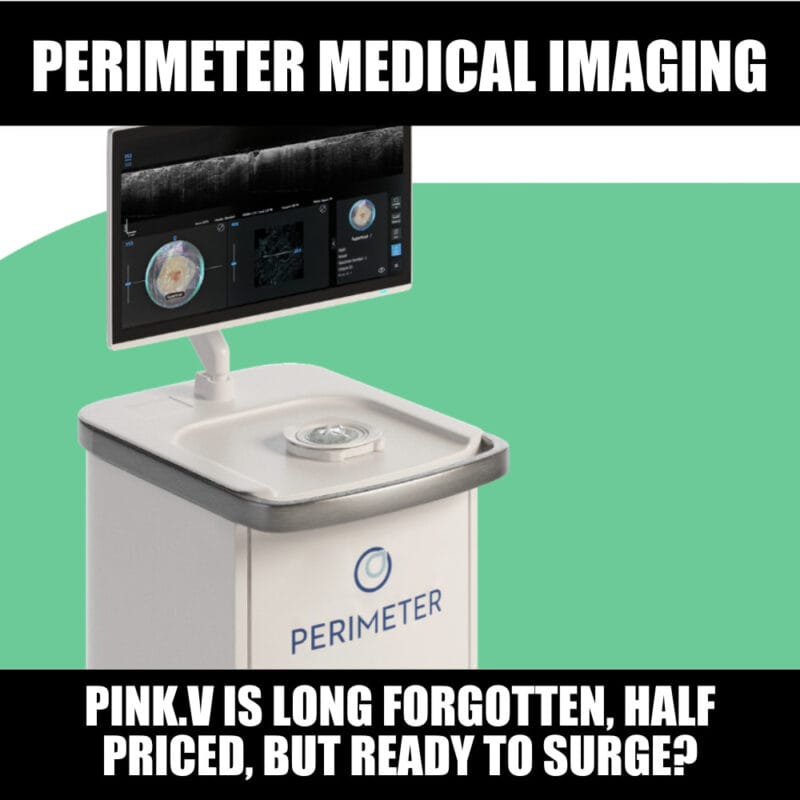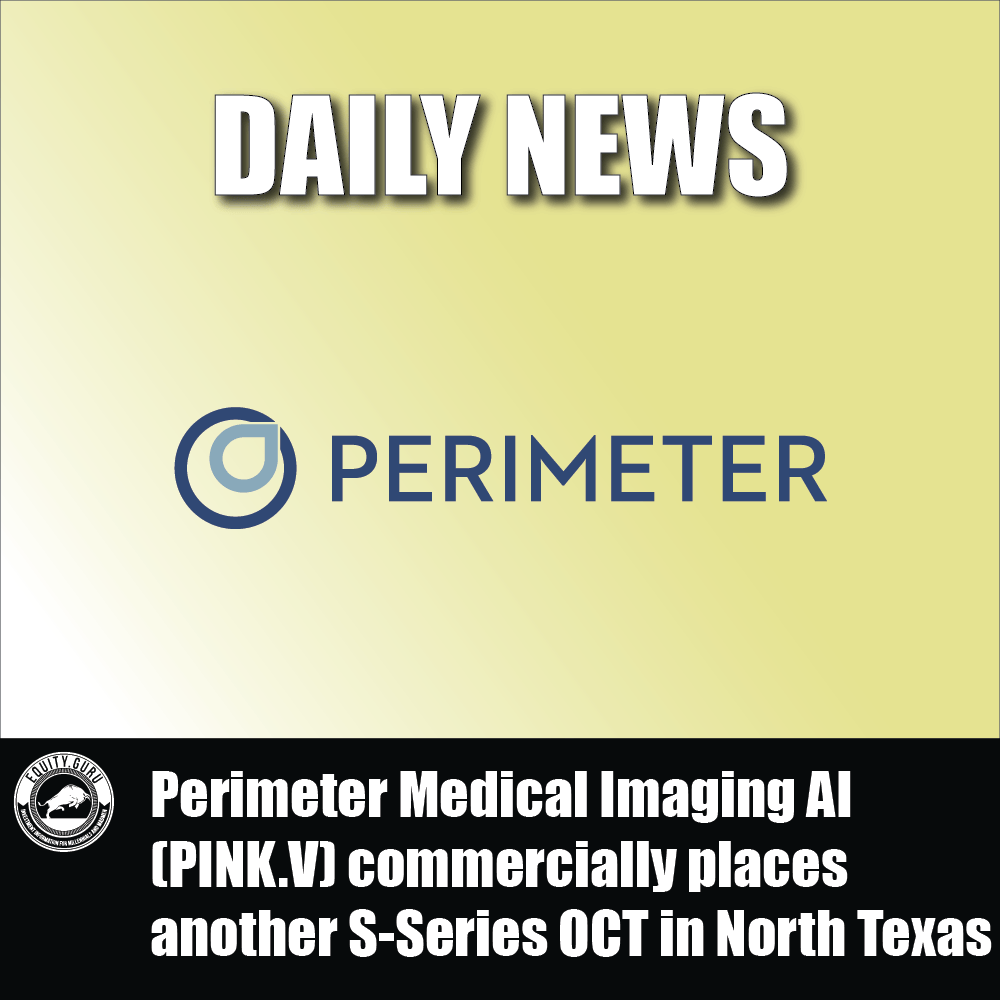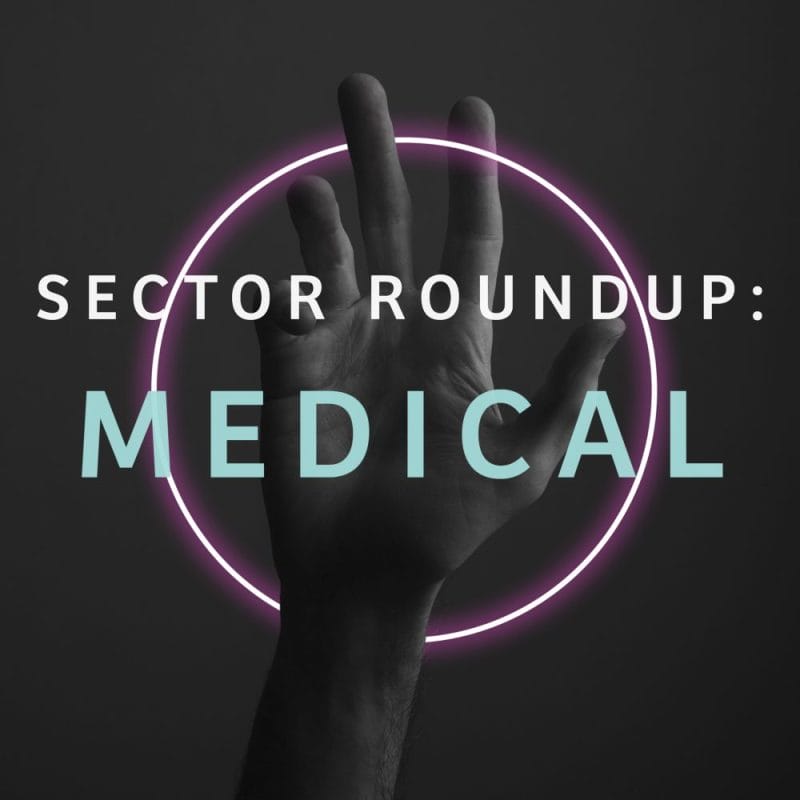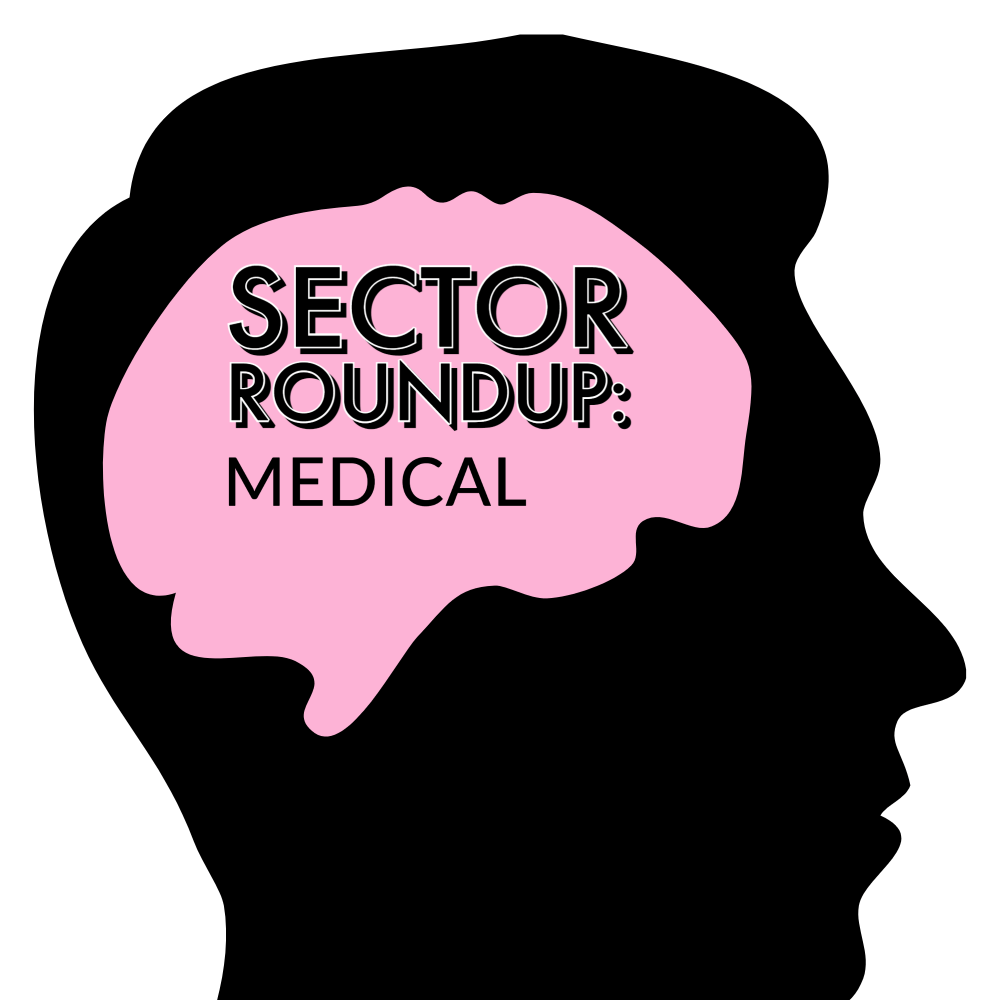There is a tendency in our culture to avoid talking about illness.
It’s a downer.
It’s bad voodoo.
Why rattle the cage?
But when people do decide to speak bluntly about illness, the reaction is usually positive.
“Breast cancer in women has leap-frogged lung cancer, now accounting for the most cancer diagnoses worldwide – and the situation is likely to get worse in coming decades,” reports Diagnostic Imaging.
“No-one likes to receive bad news, especially when it’s related to health,” states News Medical.”
“But a recent study of women at risk of developing breast cancer suggests knowing your genetic risk profile does not lead to long-term distress and leads to fewer regrets than not wanting to know about it in the first place”, continued News Medical.
Knowledge – apparently – is empowering.
When it comes to cancer, the quicker the information comes, the more useful it is.
Perimeter Medical Imaging AI (PINK.V) is changing the speed at which medical professionals receive information about cancer patients.
PINK has developed imaging tools that allow surgeons, radiologists, and pathologists to visualize microscopic tissue structures during a clinical procedure.
This technology has immediate application in breast cancer surgery.
In 25% of Breast Lumpectomy surgeries, cancerous material is left behind.
With current technology, the surgeon needs to wait about a week, to see if she’s got all the cancerous material.
PINK has invented a machine – driven by A.I. – that can get that information in real time.
No need to cut the patient open again later. The surgeon can make adjustments on the fly.
That radically reduces patient-trauma and healthcare costs.
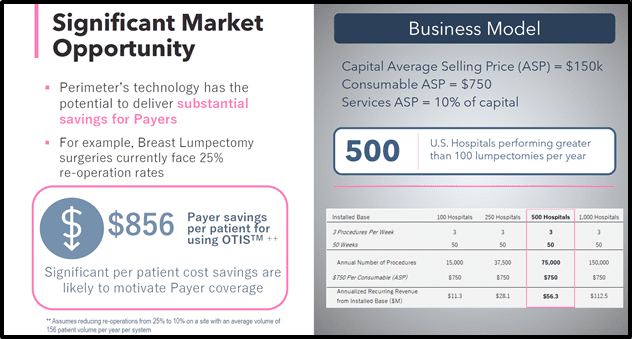
Recent PINK Corporate Highlights
- In February 2020, Perimeter was awarded a $7.4 million grant by the Cancer Prevention and Research Institute of Texas to support the development of Perimeter’s artificial intelligence software.
- On March 1, 2021, Perimeter announced that it had received 510(k) clearance from the U.S. Food and Drug Administration (FDA) for version 2.1 of the Perimeter S-Series OCT, enabling Perimeter to bring its commercial-ready imaging platform to the U.S. market.
- Previously referred to as “OTIS,” Perimeter S-Series OCT is indicated for use as an imaging tool in the evaluation of excised human tissue microstructure by providing two-dimensional, cross-sectional, real-time depth visualization with image review manipulation software for identifying and annotating regions of interest.
- Initiated a clinical study, which will enroll up to 100 patients, that will evaluate the use of Perimeter S-Series OCT during breast conserving surgery, with the aim of demonstrating that surgeons can effectively use Perimeter S-Series OCT to aid their decisions if additional tissue needs to be excised.
- On April 15, 2021, Perimeter announced that the FDA granted a Breakthrough Device Designation for Perimeter OCT combined with ImgAssist AI – to be called Perimeter B-Series OCT.
- This designation allows for accelerated interactions with the FDA during product development and prioritized review of future regulatory submissions.
- Initiated the first phase of its ATLAS AI project which involved collecting images of breast tumors from patients at leading cancer centers in Texas – including Baylor College of Medicine, M.D. Anderson Cancer Center, and UT Health San Antonio – to both train and test its ImgAssist AI technology.
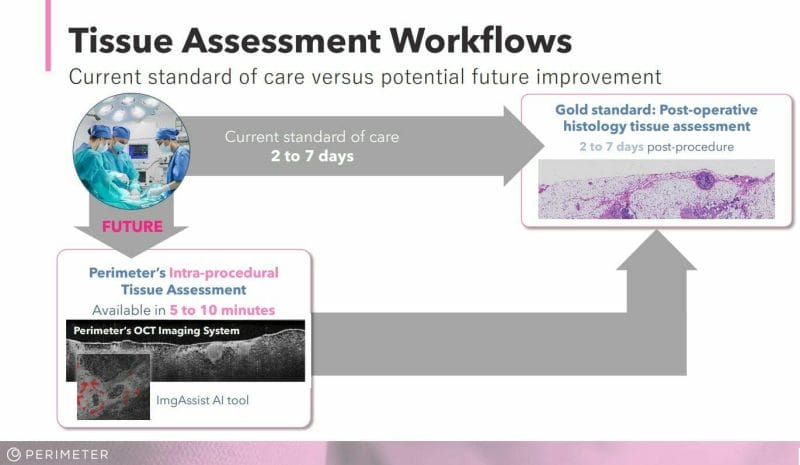
PINK is accelerating toward the commercialisation of the OTIS platform. It has already received a $7.4 million grant (non-dilutive capital) from the Cancer Prevention and Research Institute of Texas (CPRIT) to fund the ATLAS AI Project.
The CEO, Mr. Sobotta has been a part of the deployment of over $4 billion in capital over his career in acquisitions. Prior roles included Head of Finance for the Stryker business unit responsible for surgical equipment and women’s health.
“If PINK puts their device in 1000 hospitals over the next five years, that’ll bring them $150 million in upfront sales,” reports Equity Guru’s Chris Parry, “That’s nice, but at Equity Guru we generally don’t get attracted to up-front revenue models, because the moment you sell one device, you’re back to square one in the hunt for the next. We want monthly contracts, maintenance, or consumables into the bargain”.
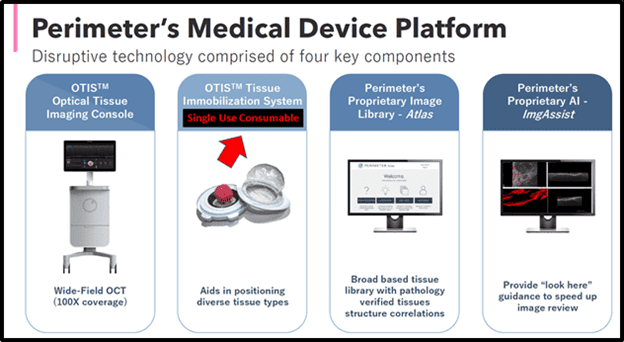
The device above is the OTIS Tissue Immobilization System – a single use consumable used when checking tissue during surgery, that costs US$750 and a high gross margin for Perimeter.
“Yeah, I know, high margins seem awkward to discuss when you’re dealing with cancer patients, but it also helps achieve a 100x clearer image than those achieved with an MRI, and a 10x clearer image than an ultrasound and Xray, and if you’ve had any of those imaging procedures applied to a medical bill, you know Perimeter’s option is more than fair, considering.”
That single-use consumable projects as US$100k of income for each installed machine, per year, or $100 million annually if they hit that 1000 hospital mark talked about earlier.” – End of Parry.
In the video below, Perimeter CEO Jeremy Sobotta talks to Equity Guru’s Jody Vance about PINK’s technology.
“Surgeons do not have the tools available to assess the patient in real time and know that they’ve removed all of the cancer after that operation,” Sobotta told Vance, “It’s a complicated procedure, you’re in a very difficult place to access within the patient, it’s dark, they have to use different techniques to try to ensure they get it all out. Unfortunately, about 25% of the time, they leave some behind.”
“What the AI does is similar to a radiologist and a mammography looking for different features within the image,” Sobotta continued, “The AI highlights those features within the image, so the surgeon can quickly scan the parts that are relevant to them and ignore some of that other stuff”.
“With the patient still under anaesthesia, the AI expedites the review and gives the doctors more confidence that they’re looking at the right information,” concluded Sobotta.
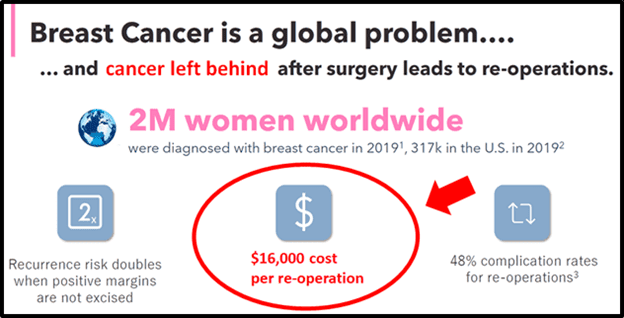
“In the biotech/medtech world, the steps to viability as a company are proving your technology works, getting that technology approved by the FDA, finding doctors who are interested in using it, and commercializing the product so it can be manufactured to scale,” reports Chris Parry on June 10, 2021.
Perimeter Medical Imaging (PINK.V) just made it through the final boss level.
“For the first time, the Perimeter S-Series OCT was manufactured at commercial scale, and we believe this collaboration results in a highly scalable, fast and efficient commercial manufacturing process that enables us to meet our customers’ needs in a capital-efficient manner,” stated Perimeter CEO Jeremy Sobotta.
“In the overall scheme of things, this is a monumental milestone,” added Parry, “It drives down the cost to manufacture, speeds up the time to manufacture, and allows the company to focus on sales to the end user.”
The American Cancer Society (ACS) reports that there were 19.3 million new cancer cases diagnosed in 2020, 2.3 million (11.7%) – of which were female breast cancer.
“I’ve been invested in this company for some time,” concluded Parry, “and not only has it been profitable for me as an investment, but I feel all the better knowing my dollars are helping it exist in the world”.
Full Disclosure: PINK is an Equity Guru marketing client

